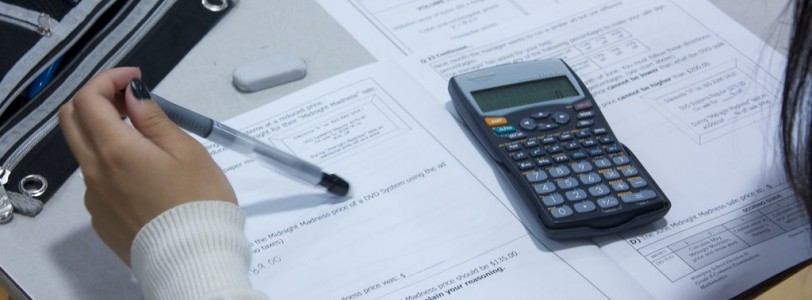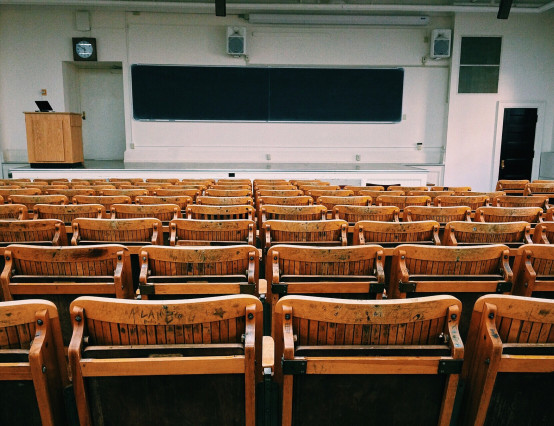Following the closure of schools for the foreseeable future, the Office of Qualifications and Examinations Regulation (Ofqual) announced that this year’s GCSE, AS and A Level summer exams have been cancelled. Shortly after this announcement, the board announced that students would still receive grades without sitting the exams in a new scheme which they have assured will be ‘a process which fairly recognises students’ work and makes sure they get their grades in time to progress’.
Information released by Ofqual states that ‘exam boards will ask exam centres to generate, for each subject, centre assessment grades … for their students, and then to rank order the students within each of those grades.’ This process will only apply so far to GCSEs, AS and A-Levels, Extended Project Qualifications (EPQ), and Advanced Extension Awards (AEA) in maths, although there is a plan to apply a similar approach towards the assessment of more vocational or technical qualifications, which seems surprising, as these involve a much larger element of practical assessment.
A letter was also released to students, outlining what was going to happen. Here are some of the key points:
‘Your school or college will be asked to send exam boards two pieces of information for each of your subjects, based on what they know about your work and achievements:
- the grade they believe you were most likely to get if teaching, learning and exams had happened as planned
- within each subject, the order of students at your school or college, by performance, for each grade. This information will be used to standardise judgements – allowing fine-tuning of the standard applied across schools and colleges’
The Government has also released guidance for what heads of centres have been asked to use to generate grades and report to exam boards:
‘A centre assessment grade for every student in each of their subjects: that is, the grade they would be most likely to have achieved if they had sat their exams and completed any non-exam assessment. Judgements should balance different sources of evidence such as:
- classwork
- bookwork
- any participation in performances in subjects such as music, drama or PE
- any non-exam assessment – whether or not complete
- the results of any assignments or mock exams
- previous examination results – for example, for any re-sitting students or those with relevant AS qualifications
- any other records of student performance over the course of study
- the rank order of students within each grade for each subject – for example, for all those students with a centre assessment grade of 5 in GCSE maths, a rank order where 1 is the most secure/highest attaining student, and so on. This information will be used in the statistical standardisation of centres’ judgements – allowing fine-tuning of the standard applied across all schools and colleges
- a declaration from the Head of Centre making the submission'
As can be seen above, in regards to the non-examined elements of qualifications (more widely referred to as ‘coursework’ or ‘practical work’), such as the performing arts and P.E, students will not be able to finish these, or in some cases, even begin them. This could be viewed as quite concerning. As shown on their respective specifications on the AQA website, the percentage breakdown for GCSE Music, Drama and Dance, show that they all have an examination worth 40%, with the remaining 60% of the qualification based on practical assessment. This may make students taking more practical subjects like the performing arts more vulnerable to unrepresentative grading when it comes to their teachers marking and ranking them.
On a positive note, it should be noted that marks given by assessment centres (schools and colleges) will be moderated at random, as with any internally marked work when following standard protocol.
Students who feel that their grades from the summer do not reflect their ability will have the opportunity to take their exams in the autumn series or in summer 2021. If they choose to do this, students will be able to use the higher of the two grades for future progression.’ and this exam will be treated like a re-sit. You can also opt to appeal, perhaps as a first port of call, however, these appeals may incur charges from exam boards, which is not inclusive towards less wealthy students. Perhaps extra funding should be made available to schools to support students who want to appeal but whose families cannot afford to.
The statement currently made by Ofqual regarding appeals is as follows:
‘We are all focused on making sure students are not disadvantaged by these unprecedented circumstances, including allowing for an appeal where appropriate. We will consult on proposals for specific appeal arrangements soon.’









0 Comments